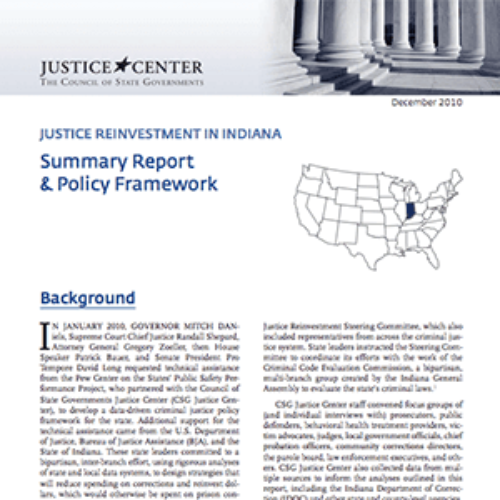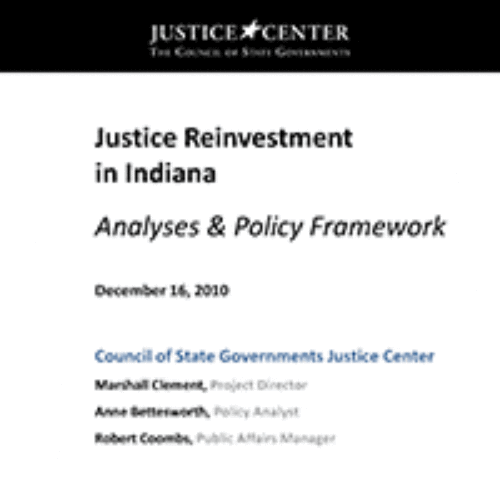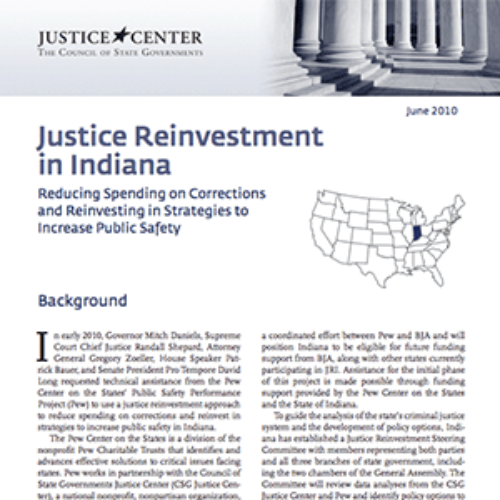Justice Reinvestment in Indiana
The Problem
In 2010, Indiana’s prison population was projected to increase 21 percent by 2017, from 28,474 to 34,794 people, at a cost of approximately $1.2 billion in construction and annual operating costs.
How JRI Helped
In 2010 and 2011, the CSG Justice Center worked with Indiana state leaders to analyze criminal justice data, interview stakeholders from across the criminal justice system, and develop data-driven policy options designed to reduce corrections spending and increase public safety. The resulting Justice Reinvestment policy framework included policies to
- Shift from a one-size-fits-all sentencing policy for theft and drug offenses to a more graduated approach;
- Strengthen community supervision by focusing resources on people at a high risk of reoffending and enabling probation officers to use swift and certain sanctions for people who violate the conditions of their supervision; and
- Increase availability of substance use treatment in the community and availability of cognitive behavioral therapy in prison.
The Justice Reinvestment policy framework was translated into legislation and introduced during the 2011 legislative session. Although no legislative action was taken during that session, legislation was passed in 2013, 2014, and 2015 to update Indiana’s criminal code. The General Assembly also appropriated $55 million in funding for grant programs during 2016 and 2017 for technology-based programs and substance use and mental health treatment and services and established a Justice Reinvestment Advisory Council to oversee progress.













